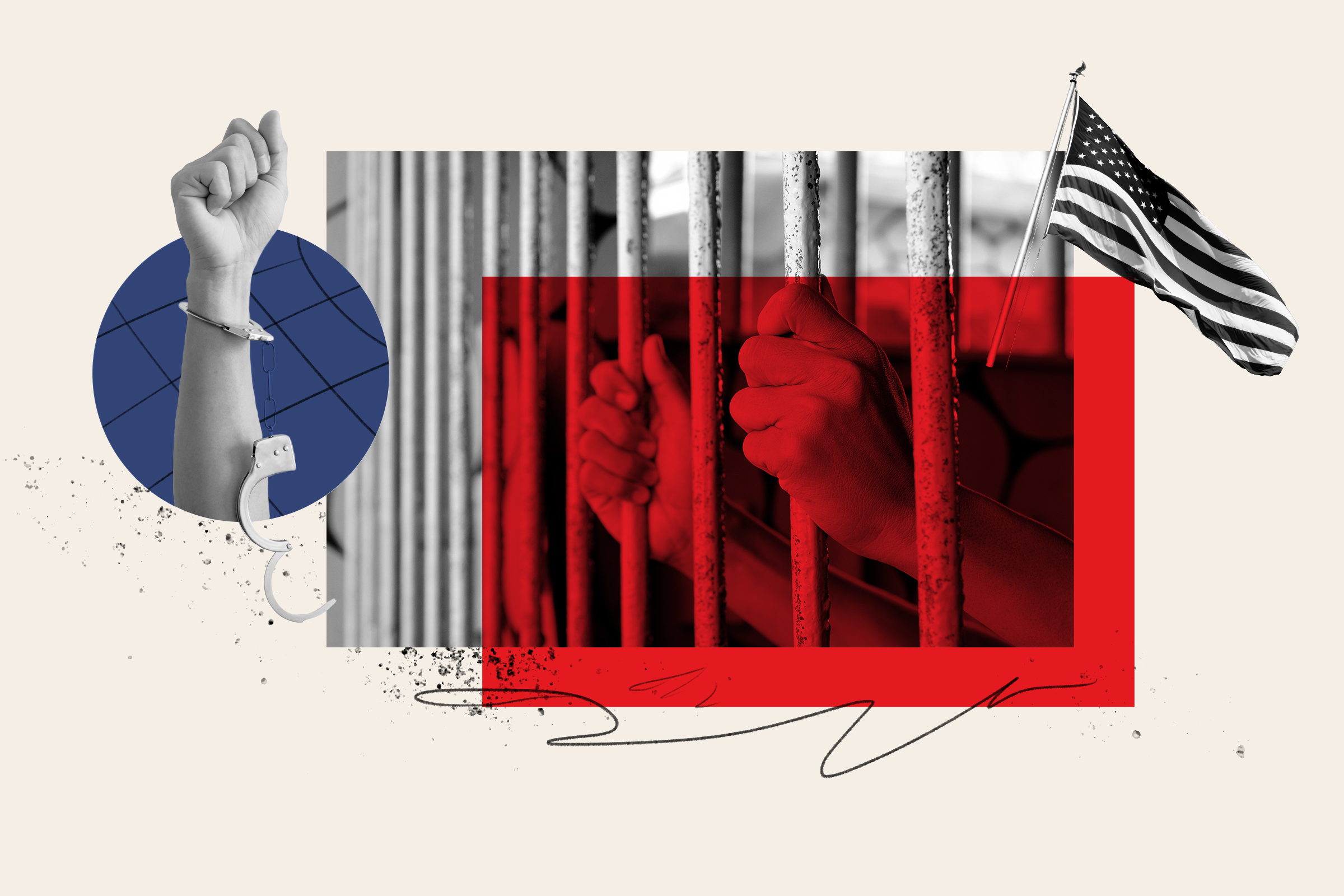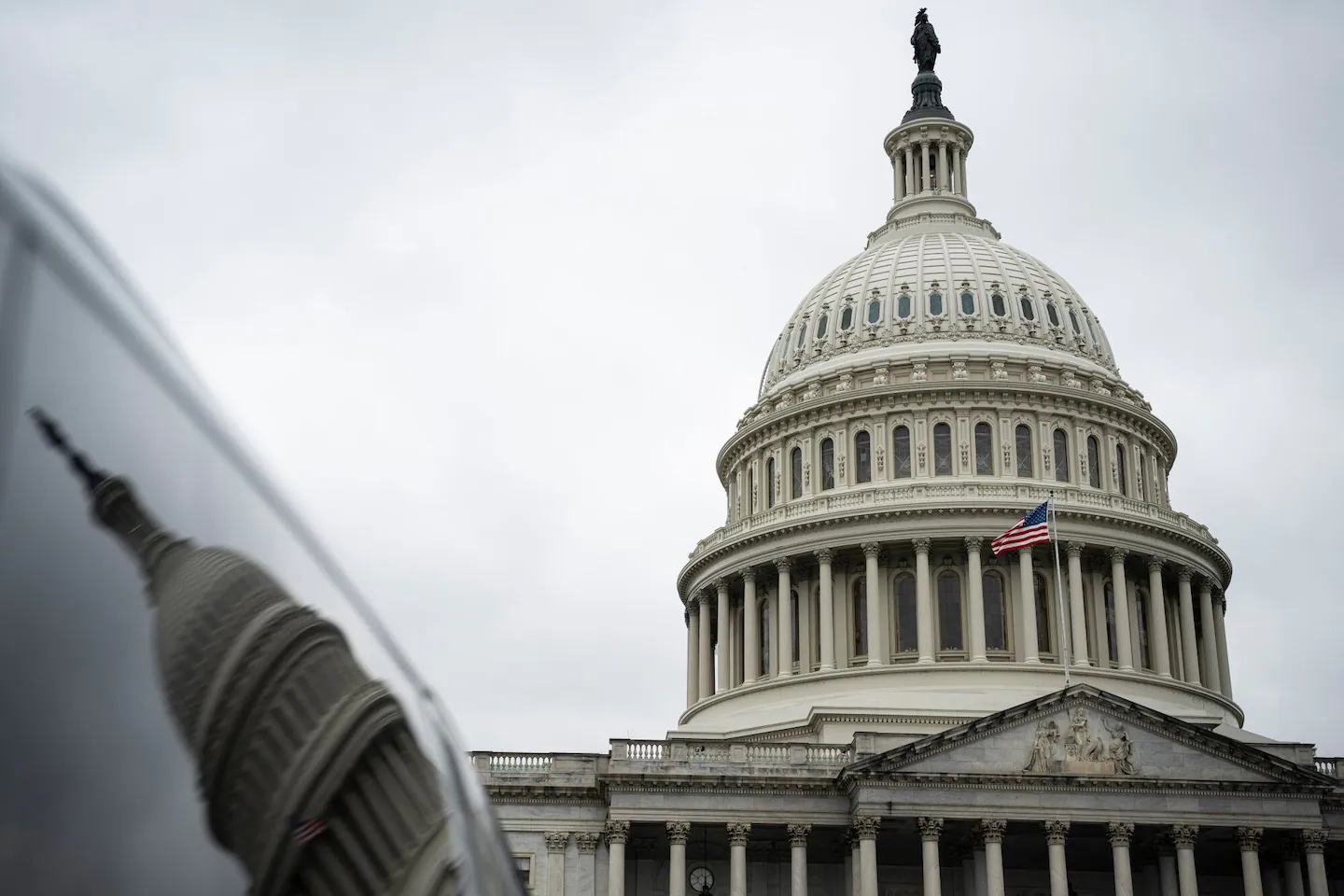
A congressman has introduced legislation honoring American prisoners Nelson Wells, Jr., and Dawn Michelle Hunt, each of whom has been locked up in Chinese prisons for over a decade, and urging their release after their long-standing claims of being wrongfully detained.
Why It Matters
Dawn Michelle Hunt, originally from Chicago, has been in Guangdong Women’s Prison since her 2014 arrest for drug smuggling—a charge that she, her brother, Tim, and father have vehemently denied and say was coerced by a foreign actor. Nelson Wells Jr., a New Orleans area native, has also spent over a decade in a Chinese cell for drug charges that he, his family and his representatives believe are dubious.
Both Americans are just two of an estimated 200-plus U.S. citizens said to be wrongfully detained by China, spurring action by some members of Congress to address their and other fates before they succumb to health and psychological impairments.
Liu Pengyu, spokesperson for China’s embassy in the U.S., told Newsweek in May that he was unaware of the detainment of Dawn Hunt and Wells Jr. “I would like to share China’s principled position on this matter: China is a country governed by the rule of law and consistently safeguards the safety and lawful rights and interests of foreigners in China in accordance with the law,” he said, adding: “At the same time, all foreign nationals in or entering China must abide by Chinese laws, and those who violate the law will be held accountable.”
‘Enough Is Enough’
New Jersey Representative Chris Smith has introduced legislation, ”Nelson Wells Jr. and Dawn Michelle Hunt Unjustly Detained in Communist China Act,” calling for more stringent government oversight of detained Americans, understanding the families of these U.S. nationals stuck abroad, and holding officials within the People’s Republic of China (PCR) responsible for “wrongful detention.”
“Nelson Wells and Dawn Hunt have been unjustly imprisoned by the Chinese Communist Party (CCP) since 2014,” Smith, a Republican co-chair of the bipartisan Congressional-Executive Committee on China (CECC), told Newsweek via email. “Unfortunately, their cases seem to be microcosms of a much larger and systemic issue.
“The CCP currently wrongfully detains and holds hostage more Americans than any other country in the world. The status quo cannot, and will not, suffice. Enough is enough.”
Smith said the Wells–Hunt Act creates “a coordinated, whole‑of‑government plan to combat” the CCP’s unlawful practices, including establishing a formal “cases of concern” list to prevent future Americans from also being detained—while simultaneously levying diplomatic, legal and economic pressures on the CCP until U.S. citizens return home.
Those cases of concern include U.S. Secretary of State Marco Rubio developing a diplomatic action plan that includes listing cases involving wrongfully detained Americans, understanding how families of those detained are impacted, and reviewing whether the U.S. can hold foreign entities accountable for censoring or intimidating U.S. nationals, among other proactive measures.
“I urge my colleagues in the House to quickly pass this critical legislation, and I will not rest until all Americans imprisoned overseas have been returned to the United States,” Smith said. “Time is of the essence, and we cannot wait any longer.”
Foley Foundation findings from earlier this year show that while some Americans were freed from jails overseas in 2024, progress was minimal. Statistics suggest that more Americans were wrongfully detained between 2015 and 2024 than between 2005 and 2014.
“The Foley Foundation is encouraged by the energy the new administration has brought to the issue of hostage recovery, and views the fast start as a hopeful sign that progress can be made on several longstanding cases, in addition to others where American captives are facing acute physical and mental health issues,” Elizabeth Richards, Foley Foundation’s director of hostage advocacy and research, told Newsweek in May.
‘They Heard Us’
Nelson Wells, a U.S. Army veteran who served from 1974 to 1994, and mother, Cynthia, who recruited for the Army and worked for the Department of Defense (DOD) for 28 years, view this legislation as another step forward in what has been a long, arduous journey without their son by their side.
“I had a lot of emotions, I was really happy,” Well said. “Now when it comes down to actually bills, bills are very lengthy. … It’s a piece of legislation that I’m not quite understanding all of the jargon in it.
“But what I do understand is Nelson and Dawn’s names being mentioned. It’s coming a year after we had been at the CECC meeting, which means that they heard us.
“They understood our cry and they are now saying, ‘OK, let’s do something about this.’ And I think that this is one step further, one step closer to actually getting Nelson and Dawn home.”
Tim Hunt, formerly a 28-year Chicago Police veteran, told Newsweek that when he heard about the legislation named after his sister and Wells he became “overwhelmed.”
He and the family of Wells have known about this legislation in the pipeline for at least six months, and they were consulted about what they wanted to see.
“I’m optimistic for humanitarian release for both Dawn and Nelson,” Hunt said. “I’ve spoken before, it’s not about politics for me; it’s about our family members coming home. I just want them home. The way for them to get home is for humanitarian release.
“That’s just what I’ve been hoping and praying for, as well as the Wells’. I tend to leave the politics and things like that for the politicians. … I am ecstatic that it’s named after my sister and Nelson Wells, Jr., they will forever be intermingled in this tragedy.”
Hunt added: “The bill is great, but it’s the humanitarian release which me and my family are focused on right now. Bring them home. We testified a year ago, that anniversary’s coming up. That means that they’ve been in there another year.”
Justly and Unjustly Detained
Peter Humphrey, an ex-prisoner of China who advises imprisoned Americans’ families, told Newsweek that he and the Hunt and Wells families knew this bill had been in the legislative pipeline for at least six months.
“I would say there is one big positive, immediate big positive in this piece of legislation, and that is that as soon as it is published, the names of Nelson and Dawn will become much more prominent immediately,” Humphrey said. “Those names will be seen by every lawmaker in D.C., and probably China will take note of that as well.
“So, this is a really big positive to raise their profile, to be honored in this way, as being mentioned first at the top of a list of quite a number of cases of Americans detained in China is a really big honor. I can see that the other positives in the bill, the draft bill, are much more sort of longer term and bigger picture. Ultimately, they should benefit any Americans who get detained in China.”
“Weaknesses” in the legislation also exist, Humphrey said, pointing to how it tries to retain a category of justly detained Americans in China, in addition to unjustly detained Americans in China.
“Personally, as someone who’s been deeply involved in this topic area for the last 10 years, and also was a victim of wrongful imprisonment myself along with my wife, I see that as a serious failing because we know very well there is no such thing as a fair and transparent trial in China,” he said. “We know that it is a flawed judicial system, which we cannot really call the rule of law.
“We know these things. So, we need to consider every single American who is detained in China, and has been in the past detained in China, as unjustly detained.”
John Kamm, executive director of the San Francisco-based human rights group Dui Hua Foundation, told Newsweek last December that more than 200 Americans remain detained overseas.
In March, Kamm said he filed a new appeal to press China for clemency for Dawn Hunt and Wells Jr.
“Years ago, a senior Chinese official told me, ‘When U.S.-China relations are bad, your work suffers. When U.S.-China relations are good, you benefit,'” Kamm said. “My work is now in the suffer stage.”



